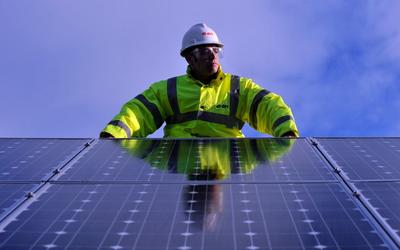Plugged in to the energy market

Using research to optimise communications
Christine McGourty of Energy UK emphasised the challenge of communicating in a market with so many competing voices. “It’s a real melee of noise that’s very difficult for consumers to understand,” she said. “There’s a lot of negativity and a lot of blame being cast in all directions.” According to Andy Cumming of Curiosity Research, energy companies could make better use of customer insights to engage with their customers and build trust. “The first thing to be aware of when you are trying to build engagement through communications is the complexity of engagement,” he said. That complexity means that one size does not fit all. “You need to segment different people. You’ve got to work out who you want to target in what way.”
If done correctly, engaging with customers can turn them into advocates for a brand, but energy companies have a long way to go before they build this level of trust.
Making the energy market work for consumers
Liberalising of the energy market should, in theory, have benefited consumers by introducing competition. Participants in the panel discussion were clear that this does not work if few customers are willing to change providers.
“The number of tariffs in the market is a major deterrent to people getting involved in the market. People visiting price comparison sites are overwhelmed by the choice of tariffs,” says Stephen Link of SPA Future Thinking. “A lot of people going online to use price comparison sites actually choose not to switch.”
Several delegates felt that group buying of energy by streets, villages or business communities might change the market.
And, according to Link, there is some good news already. “A number of energy providers are reducing the number of tariffs that they have”.
Influencing behaviour to reduce energy usage
The afternoon session was devoted to discussing how consumers can be motivated to change their behaviour to help meet carbon reduction targets. Charles Michaelis, chairman of Databuild, is pessimistic about the possibilities for changing deep rooted behaviours. Consumers want significant savings to offset the perceived hassle of making energy efficiency improvements to their houses, he said.

We hope you enjoyed this article.
Research Live is published by MRS.
The Market Research Society (MRS) exists to promote and protect the research sector, showcasing how research delivers impact for businesses and government.
Members of MRS enjoy many benefits including tailoured policy guidance, discounts on training and conferences, and access to member-only content.
For example, there's an archive of winning case studies from over a decade of MRS Awards.
Find out more about the benefits of joining MRS here.












0 Comments